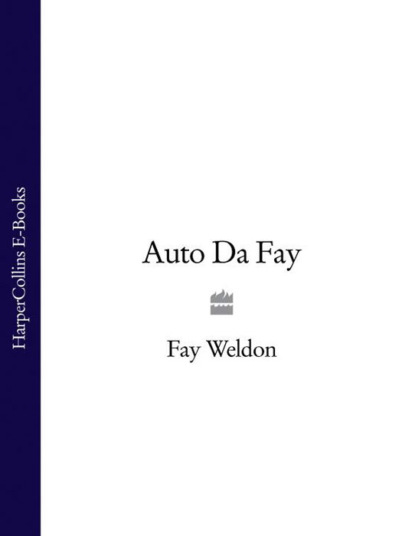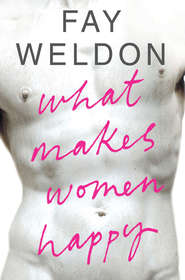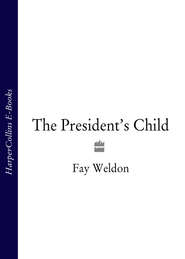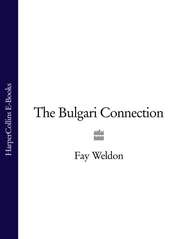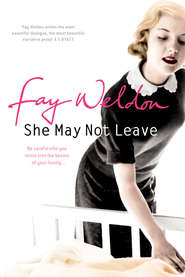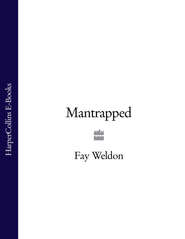По всем вопросам обращайтесь на: info@litportal.ru
(©) 2003-2024.
✖
Auto Da Fay
Настройки чтения
Размер шрифта
Высота строк
Поля
Playground Narrative (#ulink_8506bb53-d149-5d28-b20e-4f04b99a1210)
When Jane and I returned from Coromandel in the autumn of 1938 we found that our mother had moved house again. Turn your back for a moment and she was off. Mostly we lived in furnished houses, so moving was not a big deal. She has always believed there is somewhere better round the corner, and by and large she was right. This little house was surrounded by green trees and was dark and damp, but I could walk to school and I liked that.
We were not there long because my mother became ill with jaundice, and Jane and I were sent to stay with friends in Sumner, a seaside town a few miles out of Christchurch. It was thought we would enjoy being on the beach but we had been spoiled by Coromandel and were not grateful. It was a flat dull beach, its only feature a large rock with a tunnel cut through its middle for the fun of it, but it always smelt of pee. So did the school we were now sent to: Jane hated it, I didn’t mind it, but I was shaky on past participles and you got the strap if your homework had too many mistakes in it. The trouble with moving schools was that some things you knew too well and other things you didn’t know well enough: but at least your past had no time to catch up with you. The strap was a leather thong: it did your hand less damage than the cane, but the hurt went on for days, or so they said. At least it was not the paddy, which was a flattish long-handled wooden spoon with a hole in the shallow bowl, to raise a blister in the palm of the hand. Only the boys got that: girls were spared. There were some advantages, I could see, to being female.
Once my mother was better Jane and I became ill. We caught whooping cough, quite badly, and were taken to recuperate on a farm at a little place called Kowai Bush.
We collected pails full of warm milk from the cows and warm eggs from the hens. By day I read and by night I coughed. I read all the Hans Andersen stories and as many of Andrew Lang’s Fairy Books as I could. I began on E. Nesbit and Rider Haggard. The cough kept coming back at night, and was frightening, because sometimes I felt I would never breathe again, and die, like the Little Mermaid. When we were ill my mother was really attentive. She would get up in the night and bring us honey and lemon drinks. Jane and I became adept at presenting her with short intensive illnesses. I try to do as much for my children, but after three days’ nursing I begin to lose patience, and the flow of tender loving care becomes erratic, and they by some miracle, or instinct for self-preservation, get better at once.
Jean Stephenson and Helen Shaw came to visit us, forgiven by my mother for any sins they might or might not have committed. They seemed to want to please. Jean took pride in knitting us Fair-Isle jumpers, made in lengths of different coloured wool to a traditional Scottish pattern. They were scratchy and ugly. If you chose the right place, snipped a single strand with the scissors or with your teeth, and pulled, the garment would fall in half. This seemed to me immeasurably funny and I took pleasure in doing it. Jean would patiently knit the pieces together again, I would snip, she would knit, until she finally gave up. This is the only piece of gratuitous naughtiness I can remember having committed through my entire childhood. Life was too precarious: we lived on a knife-edge, financially and socially: we knew better than to rock the boat. We were two very good, very polite and docile little girls. I was discovered weeping over The Snow Queen. It was the sliver of ice in Kay’s heart that frightened me, which stopped him loving Gerda. I foresaw a life full of Ice Queens swooping down with the wind and freezing my beloved’s heart towards me. I was not far wrong.
In the summer of 1940 Jane and I found our father’s Coromandel bed filled by a tall, elegant, rather brusque woman called Dr Edna Mackenzie. She was the school doctor in Hamilton, a hundred miles or so down country. I had nothing against her personally: indeed, she was an extremely kind and helpful person who laid the table and sat us down to proper cooked meals, instead of the sandwiches my father favoured. I was not sure why she was in my father’s bed at night: there was a perfectly good spare room: it was wives who shared beds with husbands and by lying close together, I had worked out, they had babies. I got up early one morning and slammed and slammed the kitchen door to get them out of their bed and my father called out in annoyance and I cried. I stood on the tap of the rainwater tank. But it was rusty and broke and all the water ran out and away, and I cried and cried. My father was irritated but Edna said, ‘She misses her mother, poor little thing,’ and I cried some more, full of self-pity. That was the first year of the war, my mother was ill again and we stayed on in Coromandel and went to school there.
When we got back to Christchurch six months later there were nits in our hair. My mother said, pulling and tugging with the nit comb, ‘Fine school doctor she turns out to be!’ and I decided that you didn’t speak about the South Island when in the North, or about the North Island when in the South, there was too much antagonism around. I had tropical sores on my shins, too, which came, or so my mother said, from walking barefoot to school. I was quite proud of them. They ate deeply into the flesh, right down to the bone. I have the scars to this day.
On our ritual journey up to Coromandel the following year, when we were walking in the Wellington Botanical Gardens looking for rare ferns, my mother told us that Edna and Frank were married. The sky darkened and the ground seemed to open up. The weather had been dry and the lawns were sparse and networked by myriad little cracks where the earth showed through. Now these seemed to deepen and widen, and I had to stand very still for fear of being swallowed up by nothingness. I was not sure whether this was a real earthquake or one of the ones in my head. I kept my face still and said that was bigamy, since he was married to my mother. She said that she and Frank were divorced and had been for two years. She explained what divorce was. It was the first I had heard of such a thing. And why would anyone want Edna, when he could have had my mother?
What a strange family we were, and unhappy, judging from the look on my mother’s face, and things had so nearly gone well. And how stupid I was not to have realized. I could tell that nothing was ever going to be right again. The pattern of my life was establishing itself, and it was not good, and there was never to be any curing it. Jane said nothing and stared at her shoes. They were well polished. Mine were scruffy. We were too embarrassed to look at one another, or indeed at my mother. The ground reverted to normal though it was some time before I felt safe enough to move.
I did not discuss the matter with Jane. We both kept our own counsel. Nor did I speak freely or easily to my father thereafter: I thought he must take me for such a fool. I was taken to the Botanical Gardens in Wellington a couple of years back, while on a book tour. It seemed rather a pleasant place and the lawns were well watered: nor did the earth yawn. But I still had the feeling that it was a place where the devil had once flown by, and we’d got caught up in the dark wind of his wings, because we just happened to be standing there, the three of us, Margaret, Jane’nFay, in his path.
It was shortly after that that Jane got bored with my tagging along. She’d tell me to go away and stop following her: she turned and looked at me once with an expression so dangerous and manic that I was frightened: I never trusted her with a confidence again, or my mother, let alone my father. Life, I could see, had to be borne on one’s own. I smiled and skipped about as expected but I had learned to be wary. Being sociable, I put my trust in friends and learned to turn my family life into playground narrative, the better to entertain them. I knew it was a kind of disloyalty, even then. I have never stopped. I put it on paper now, elaborating further and further away from the original tale, with a succession of what ifs, what ifs, but the source, the riverhead, is the playground narrative.
A Burning Bush in Hagley Park (#ulink_cf47587e-bf48-592e-80d9-09fc1530310f)
My mother was losing interest in worldly matters. She had seen angels in Hagley Park: where once I had held my father’s hand and seen a parachutist floating down from a clear sky, now she saw, floating down, pillars of light: the light spoke to her, reassured her; she was in despair at the time, she said, as to what her life had come to, and ill, and anxious as to how to keep us, but they told her all would be well in the end. She was special to them.
I read a description in C. S. Lewis’s Perelandra of just such pillars of light: he too described them as angels. They too appeared at a time of crisis. Such visions are both transfiguring and dangerous: the Church is suspicious of them (Joan of Arc ended burned at the stake) and psychiatrists spend a lot of time and energy trying to explain them away, as they do point-of-death-experience. Some neural disturbance, some hormonal imbalance, they claim. But I don’t think so, I think she did see angels: and after that nothing that happened, nothing she did or saw, seemed quite real to her again, as if she was living in shadow, waiting for the sun to return.
Visions came to her from time to time, as if the sun came briefly out from behind the clouds. She described a vase of flowers to me, once, as it suffered a sea change into its proper self, floating with an intensity of being and beauty, before returning to its everyday self. She had glimpsed what Plato would describe as the perfect form, of which all mundane things are the shadow: it was the heaven even the nuns had spoken of, when it is enough just to gaze and adore in the Light of the Lord.
For all my bouncy practicality I was the one she talked to about these things. Others were embarrassed. Angels! Mystical experiences! In Hagley Park of all places! Floating vases of flowers? You’re joking! Jane would walk out of the room if my mother tried to talk about it: her friends thought she was a little touched; the local vicar didn’t want to know. I was perfectly prepared to believe in them: I was well aware by now there was more to our existence than meets the eye. My mother wrote to Gerald Heard, a religious leader who lived in a community in California, where later Aldous Huxley was to take mescalin and write The Doors of Perception.
Вы ознакомились с фрагментом книги.
Приобретайте полный текст книги у нашего партнера:
Приобретайте полный текст книги у нашего партнера:





